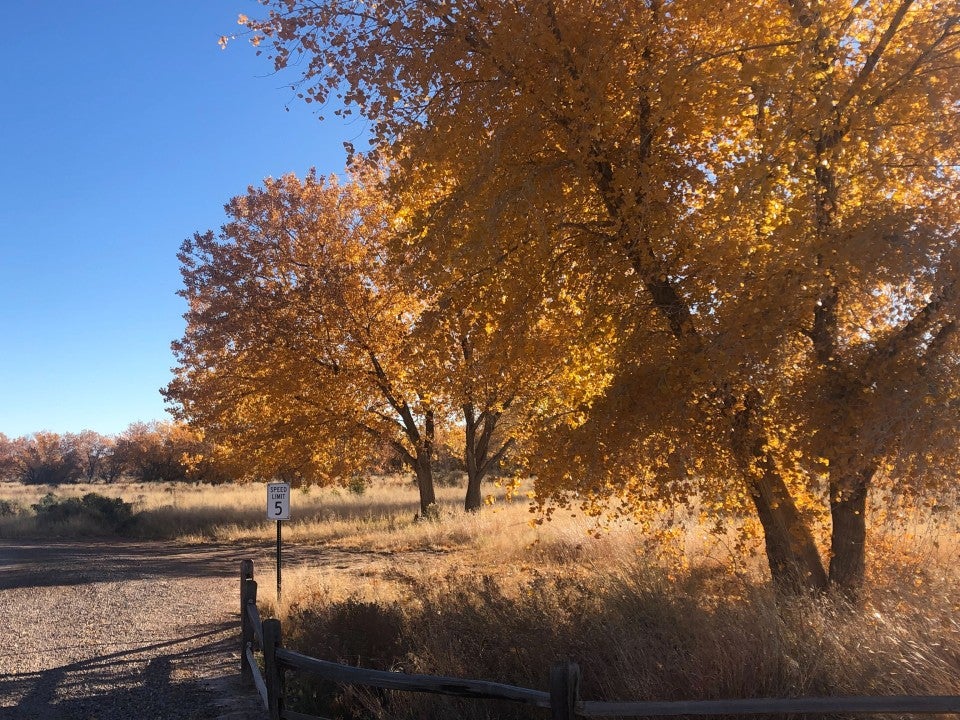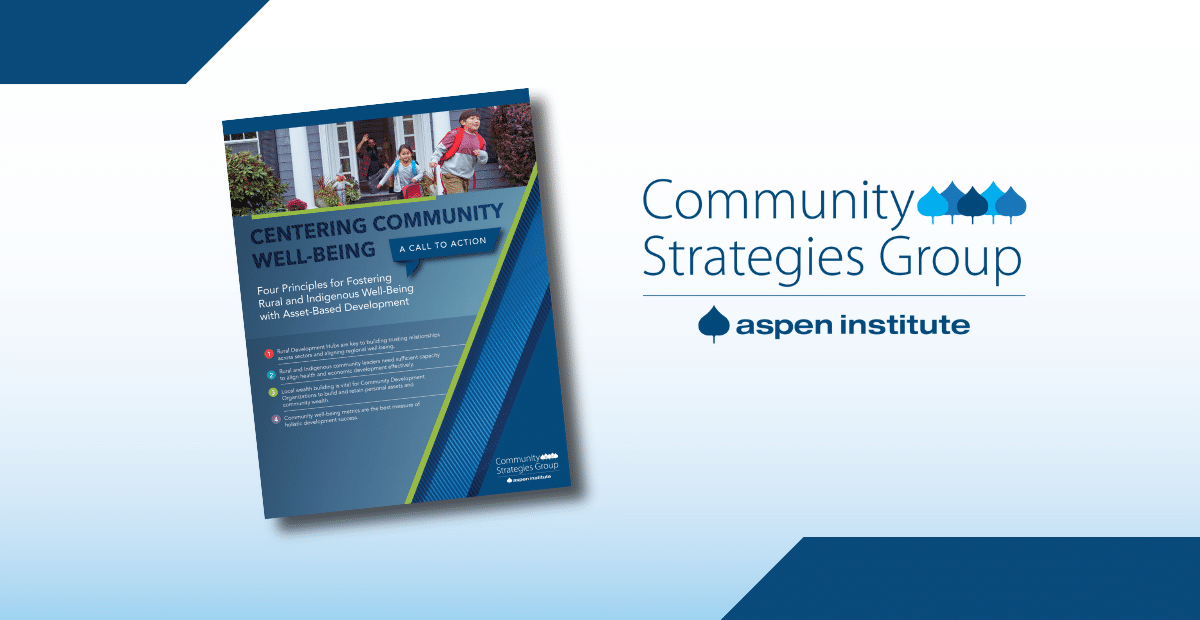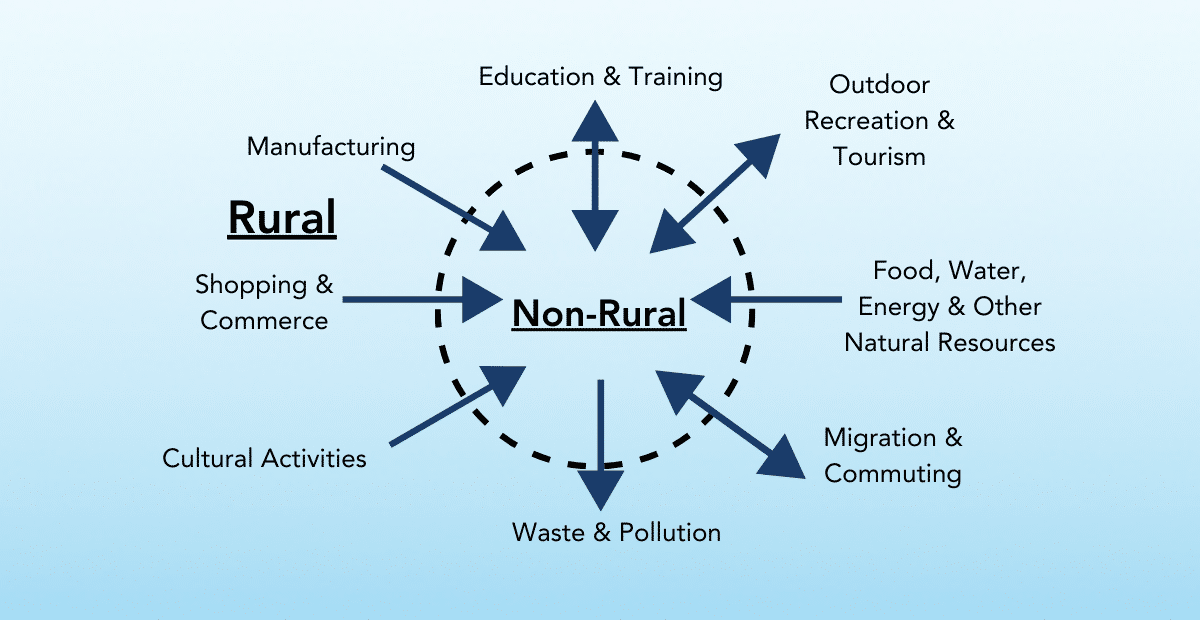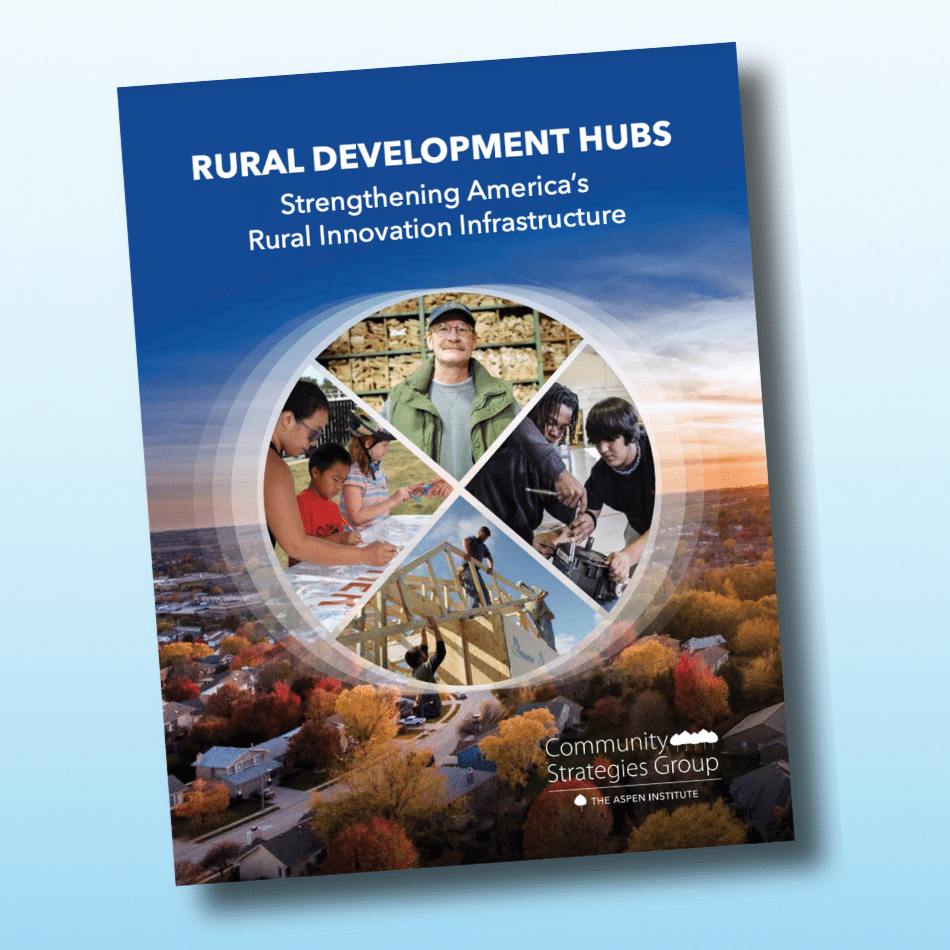As a rural-focused program working out of Washington, DC, the pandemic has allowed Aspen CSG to convene people from across the country more easily through webinar calls but requires more intentionality to travel and see people “in community.”
Therefore, I was excited to be able to attend the Aspen Institute Forum for Community Solutions fall convening in Arizona and New Mexico in early November. These visits were centered around activities and program lessons around opportunity youth (young people not in school or working). A common theme centered around leadership — an area Aspen CSG will be exploring more in the spring.
It was a really valuable experience to visit the Hopi Reservation and learn about the Hopi Foundation’s innovative work on their reservation in northern Arizona and the Pueblo of Jemez in New Mexico.
The Hopi Foundation is one of the first community foundations centered and focused on a Native reservation. Their innovative work with their community, and particularly their young people, is a model for other funders to study.
The Pueblo of Jemez was one of the first places in the country to secure charter school funding. It was able to include cultural and native language programming in the school curriculum (and later secured funding for a charter high school).
This experience highlighted several takeaways valuable for equitable rural development — and Native nations and Indigenous communities in particular:
Both communities were very centered on the importance of youth to their community’s present and future. Most leadership programs for youth and adults are oriented toward those who demonstrate the highest achievements or success. This approach typically misses most young people who live in poverty or face difficult home situations or struggling communities. Seeing the value of all young people as potential future leaders is a significant asset for communities.
Supporting and re-engaging Opportunity Youth offers a two-fold impact. The focus on opportunity youth highlights the value of not ignoring or writing off young people who have struggled. These young people don’t get lost from their community (which is a significant loss of potential in rural and native communities), and their leadership can positively impact peers and other community members navigating similar challenges.
Guidance and support from leaders and mentors are vital. Standing with them, supporting, and valuing them is really important for youth who may not experience that kind of validation in other areas of their lives. Community and Indigenous leaders have made it a priority to use their time and energy to invest in and support these young people.
It’s critical to center the work in the community’s priorities and what is best for opportunity youth. These communities centered their work on their culture and traditions while giving these young people chances to grow and learn (especially outside the community). This balance is critical as Native nations and Indigenous communities have a long history of other cultures being imposed on them while their own culture was stripped away.
Rural and Indigenous communities need the flexibility and trust to direct their strategies and priorities for progress. Moving away from a rural place can sometimes feel like a betrayal or the only path to success. They can also be places where young people are not welcomed back into leadership with new ideas. The two communities I visited invest in their young leaders and encourage them to explore and find their own path while also surrounding them with the community’s culture and space to return and share what they have learned.
Stay up-to-date with Aspen Institute Community Strategies Group and our work by signing up for our newsletter. Learn more about the Opportunity Youth Forum and my Aspen Forum for Community Solutions colleagues’ great work here.







